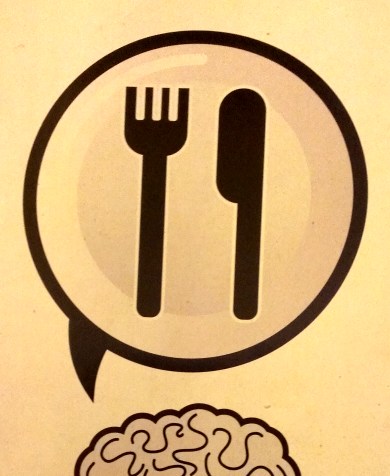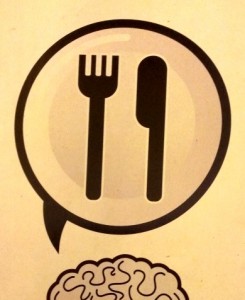By Avril Ivory (M.Sc) Academic Director CNM
Find out the best food for getting in the best mood.
“Nothing is either good or bad, only thinking makes it so.” ~ William Shakespeare
“It is not what happens to you, but how you react to it that matters.” ~ Epictetus
Our perspective on what happens, and our reactions to what happens, can be partly determined by our moods and emotions. Knowing how to be happy is important and so it’s important to understand what affects our moods. The view we have can be directed by the brain chemicals we make. These neurotransmitters are controlled partly by our genes but are very influenced by the foods we eat. While there may be genetic influences that affect the production of these valuable brain chemicals, nutrient deficiencies and environmental toxins can result in blockages in the enzyme systems that control their production and affect positive thinking and positive feelings.
When we really look after ourselves, when we ensure that we eat a diet full of high life force, nutrient dense foods and, thus, have an abundant supply of nutrients, when we have good digestive health, good absorption, good liver health and stable blood sugars, we can produce neurotransmitters that help us see the world in a better light, help us feel more optimistic, and increase our resilience to stress.
The more we understand how the body works and how certain foods, herbs and activities support the system, the more we can see the world through rose coloured glasses and even help others understand how to be happy. The liver, for example, is supported by dark green foods, bitter foods, sulphur containing foods, milk thistle, artichoke, exercise in fresh air, and emotional expression. The gut is supported by prebiotic containing foods such as garlic and leeks, by probiotics, by chewing well, by marshmallow root and dandelion, linseeds, and avoiding stress. Blood sugars are supported by eating foods that release sugars slowly (wholefoods), chromium containing foods, and combining cardiovascular exercise with resistance training. In knowing this, we understand how nutrition contributes to our own positive thinking and the positive thinking of the people we cook for.
Research indicates that good digestive health is the key to feeling happy and calm, improving sleep and enhancing memory. When we purchase and prepare dishes full of nutrients, and choose foods recently grown and, thus, high in life force, our cells maintain their vitality and function. Many of today’s illnesses are due to lifestyle choices – we are too busy, too stressed, we eat convenience food, and we avoid exercise. When we choose to slow down, to minimise stress, to eat well, and to exercise, we can feel strong and well in spite of life’s vicissitudes.
Serotonin is one of the most important brain chemicals for mood and feelings of happiness. For the conversion of tryptophan into serotonin, B vitamins and essential fatty acids are particularly important. When the diet is rich in omega 3, the cell membranes in the body are healthy and can hold the necessary water, electrolytes and nutrients. Too much sugar and bad fats, too much caffeine, alcohol and cigarettes all impair serotonin production. We can choose to have abundant happy brain chemicals by eating in a specific way.
The famous Mayo clinic in the USA recommends a diet full of wholegrain cereals, beans, legumes, fruits and vegetables. These foods literally give us food for thought (focus, attention, planning), food for a happy mood, and food for energy production in the cells.
Eating a nutrient dense diet, high in life force and low in fats, sugars and processed foods is a decision and a commitment. It also often requires new skills in terms of stocking our fridges and cupboards with new foods and learning to prepare foods differently. It is not about giving up what we like, but the development of new habits around food.
Try one new habit every week:
Week 1: Reduce meat and bad fats (biscuits, etc.) and try recipes with wholegrains and pulses such as oats, brown rice, quinoa, aduki beans, and cannellini beans.
Week 2: Incorporate a fruit and vegetable smoothie into the daily diet.
Week 3: Learn how to sprout. Sprouts are full of enzymes which aid digestion. Try sprouted lentils, chickpeas, alfalfa seeds.
Week 4: Try eating foods from every colour in the rainbow.
Week 5: Increase sources of Omega 3: nuts, seeds, and cold water fish. If necessary take a good fish oil supplement.
Week 6: You may already feel more energized and positive. If necessary, add in a good multivitamin/mineral and a B complex supplement.
CNM will be giving talks on these subjects in September:
How to be happy: Food for Mood and Energy: Anne Darcy, Naturopath & Nutritional therapist, September 4th, Rochestown Park Hotel, and September 12th, Griffith College.
Cooking for Mood and Energy: The Happy Pear, September 26th, Griffith College.
Contact CNM on 01-2353094 or dublininfo@naturopathy-ireland.com



